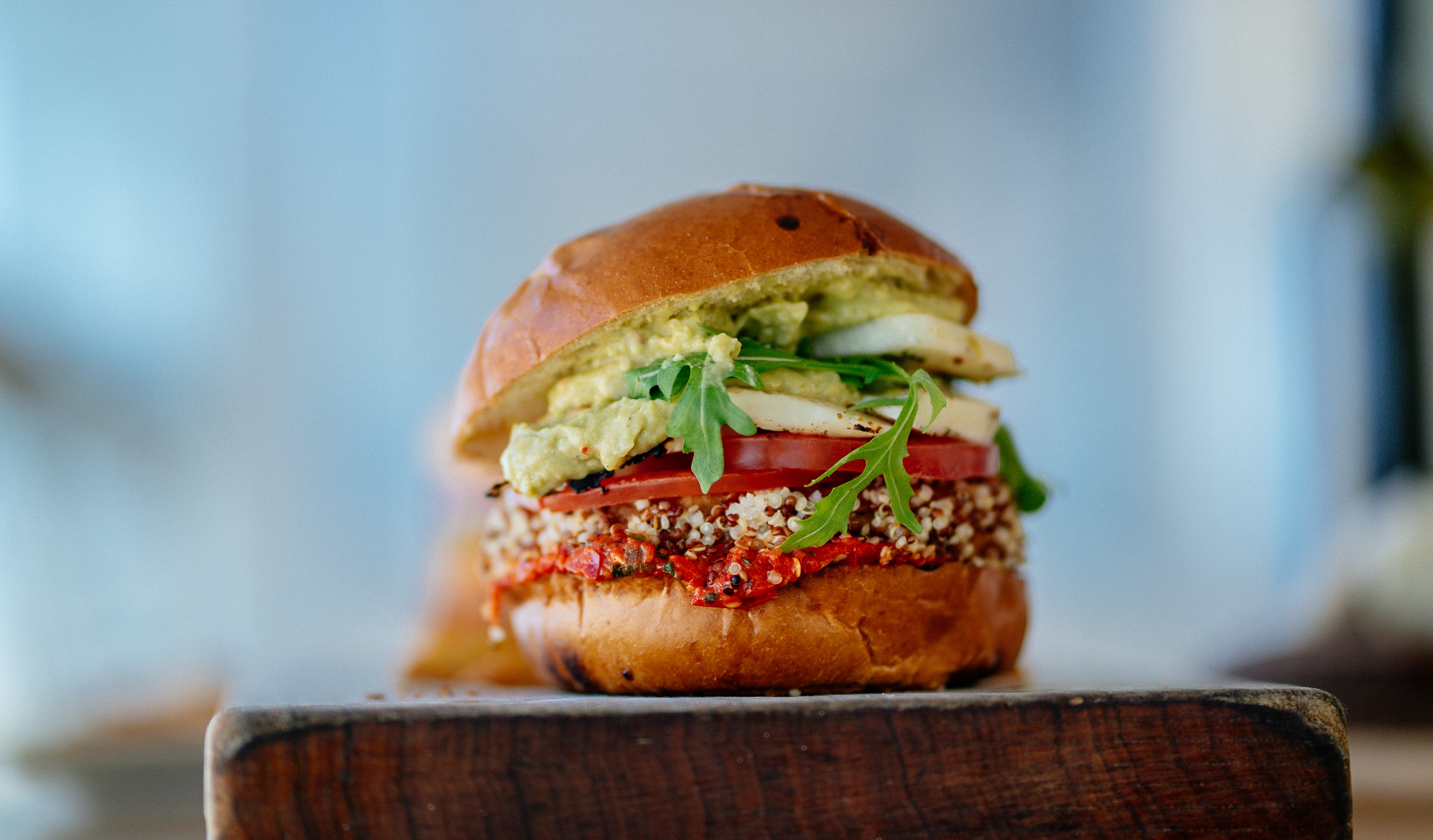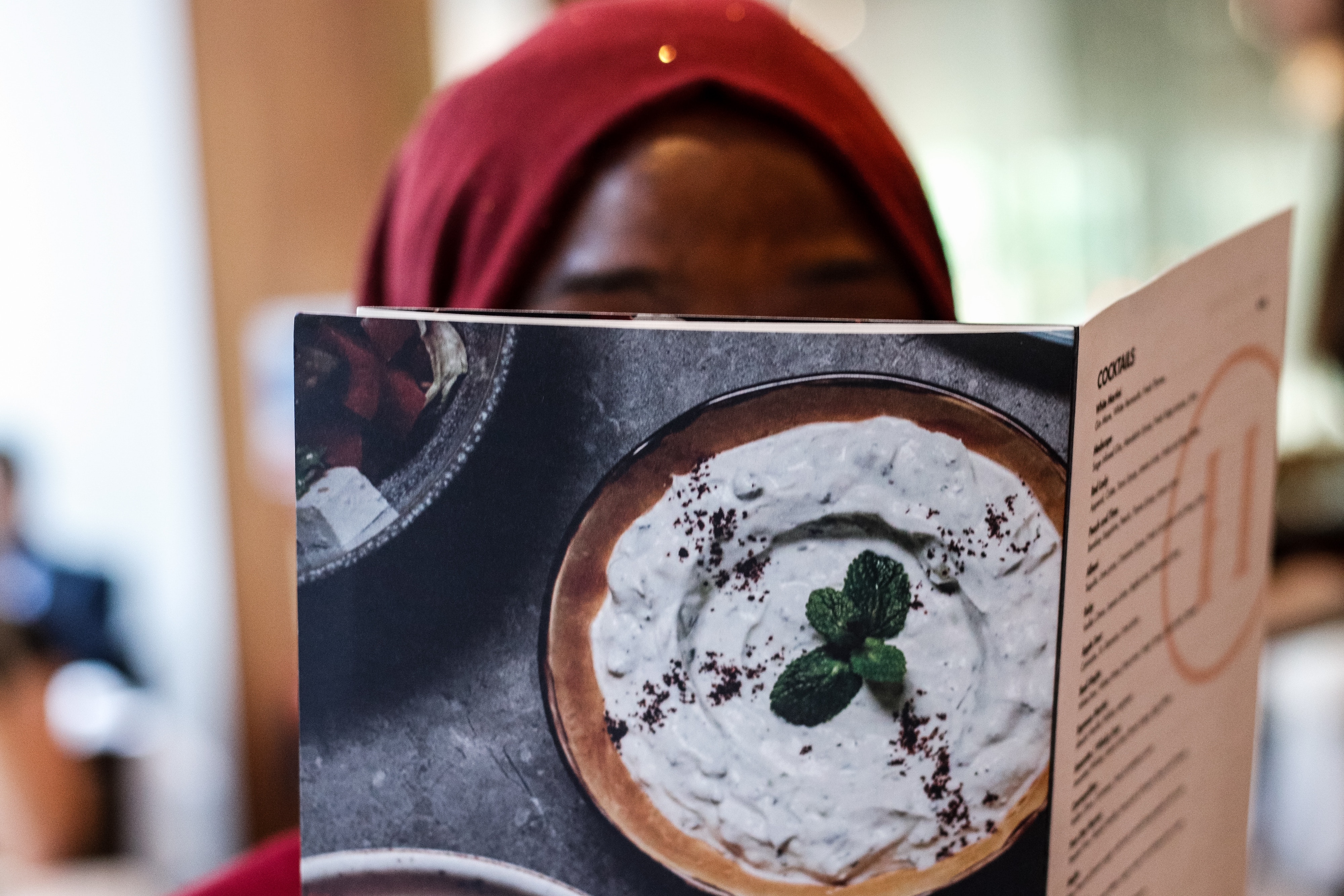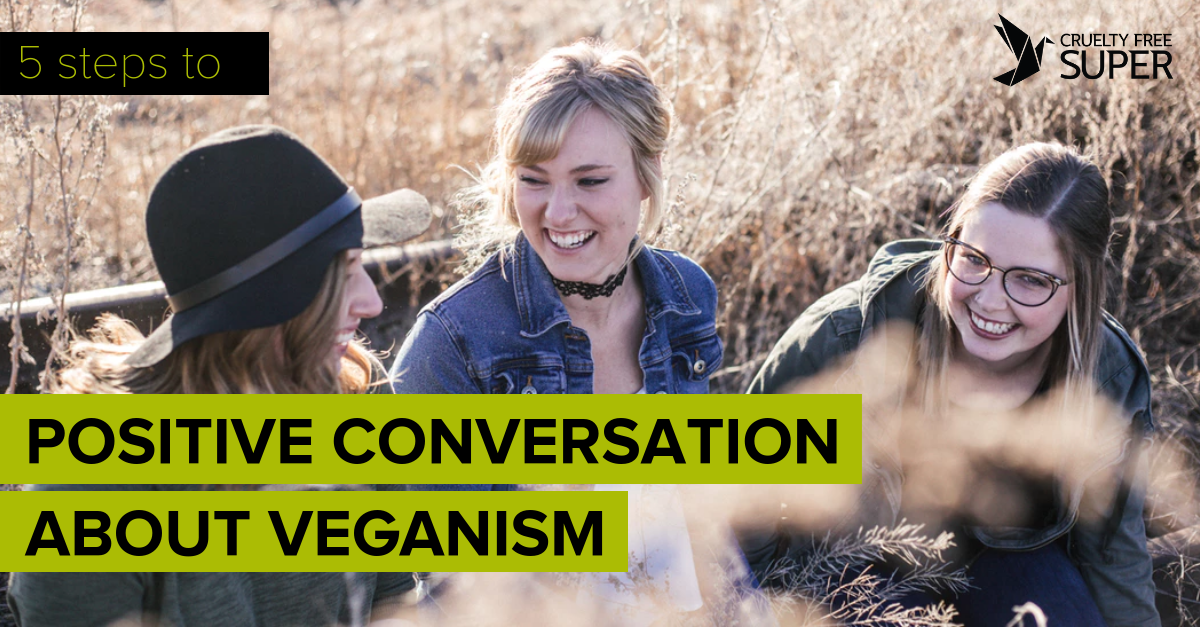If you are a vegan, choosing to talk about this lifestyle change isn’t always easy – and that’s to be expected. Following a vegan lifestyle is a highly personal decision which, for the majority of vegans, is coupled with a strong sense of passion and enthusiasm for an ethical and sustainable future.
The challenge many vegan communities face is breaking the stereotype that vegans are out to harass rather than educate, empathise, and encourage. Those who hold this stereotype are likely taking their bearings from one passionate vegan with ideas that packed punch yet were explained without a great deal of tact.
Let’s face it - talking about what we eat, how we dress ourselves and what we choose to invest our money in is bound to ruffle feathers but, when approached with a sense of respect, compassion and positivity, it could help break down barriers that exist with those in your personal and professional life.
1. Know your facts
Vegans are often met with questions – and even statements – from non-vegans around the healthfulness of a vegan diet. Such statements and questions may include
“How do you get your protein?” or “
Vegans don’t get enough iron.”
Vegans can in fact receive the majority of their required nutrients from a plant-based diet, but it will require different amounts of certain foods than an omnivorous person may require. And by having a factual answer at the ready you will convey to the person you are speaking with the relevant information without judgement.
2. Don’t force the conversation
Everyone is entitled to their own opinion, lifestyle and dietary choices, and by forcing a conversation about another person’s choice you are putting them in a defensive position, and greatly reducing the likelihood that they will listen to your opinion.
In fact, famous actress Alicia Silverstone is known to have said that she only really began to have positive conversations around being a vegan when she stopped challenging other people on their personal choices, and instead let them approach her about how her lifestyle choices were reflected in her appearance (which she credits to her vegan diet).
Allow these kinds of conversations to happen naturally even if it means you are mostly listening, because those around you will appreciate the time you took to understand their experiences. If the timing isn’t right or you can’t approach the conversation calmly, subtly changing the subject will allow you to take a constructive first step towards having a positive conversation next time.
3. Let your food do the talking
Food is our universal truth – we rejoice when it’s plentiful, delicious, and can be enjoyed in good company. A fail-safe approach to introduce any non-vegan to a plant-powerful life is with an amazing meal. Have some friends over for dinner and opt for share-style foods like cauliflower fried rice and zucchini fritters to encourage your guests to sample a variety of flavours and textures.
It could go either way – you could get recipe requests or questions about why there was no meat on the table – but at the end of the day, you’ve given your family and friends an honest yet enjoyable experience of vegan dining. There’s every chance that with all those happy tummies post-dinner conversations will be relaxed, but try planning a game or activity for afterwards to keep the positive vibes rolling.
If you are tackling the office kitchen crowd, play your cards right with a round of tasty snacks or afternoon tea treats. Pick a crowd pleaser like vegan banana bread or a fun spread of vegan dips and crackers to encourage folks to grab a bite and stay for a chat.
Remember that every moment in this experience will be unique. Some folks won’t have tried beetroot hummus or might ask “what animal produces a flax egg”, so embrace the humour that comes with discovering a world of new culinary experiences.
4. Be empathetic
A reality almost every vegan can accept is missing a certain food, whether it was short-lived or still lingers. Being vegan is grounded in empathy and understanding – conversations about veganism should be no exception. When participating in a conversation with someone contemplating a vegan lifestyle, acknowledge that it’s not easy to give up something you genuinely enjoy – yet sometimes, it can lead you to new expressions of joy. Introduce that person to a good vegan podcast or book you love to help show that making ethical decisions is gratifying in a bigger way than savouring a favoured meal and that it’s okay to fear change, especially those we have to face everyday.
To put your ethical thoughts above your tastebuds and cravings takes time, so you can also encourage that there’s no shame in transitioning slowly and giving up those foods gradually – cutting back to weekly, then fortnightly, monthly, and so on. For those who are pragmatic or perhaps closer to making the switch, offer easy and cost-effective ingredient swaps or introduce them to Facebook groups to help them engage with individuals experiencing the same challenges.
Actions speak louder than words – be sure to take the initiative to guide those who may be struggling in a way you once were.
5. Don’t let it be the only conversation you have
Being a vegan isn’t the only thing to talk about, so try and ensure that you include other areas of interest in your conversations. It can be easy to get carried away talking about the many positive benefits of being a vegan, but if another person hasn’t yet experienced these then they may not be as interested in talking about them.
Look for body language signals when talking with others to make sure that your audience are still interested and engaged in the conversation. If you notice their attention wandering, wrap up the discussion on veganism and change the subject to something you know they find interesting. This way when they walk away from the conversation, it is with a positive reflection. And, if they are interested in learning more about veganism, then odds are they’ll approach you another time.
6. Acknowledge the restrictions and plan ahead
If you are dining out with friends, it can be difficult at some restaurants to find a vegan dish (although this is definitely becoming easier!). For this reason, be proactive about dining out and decide on a venue ahead of time – this means you can check that the menu has vegan options available, and ordering your dish is not a hassle.
Your dining companions will not only see how easy it can be to order from a menu when following a vegan diet, but will also appreciate the effort you have made and so begin the conversation on a positive note.
Walk the talk
Most of all, it’s essential if you are encouraging others to adjust their lifestyle to that of being a vegan that you walk the talk in a considerate way. Think about how your conversations and actions reflect on what others see of a vegan lifestyle, and use this to guide what you say.
And by letting others see the benefits that you enjoy as a vegan, the more they are likely to make the choice for themselves to practice a healthy, sustainable and cruelty-free lifestyle.
When you switch to Cruelty Free Super, you can be confident that your super is screened from investments in harmful companies including those involved in animal testing for cosmetics, mining for fossil fuels, tobacco production, or operating gambling facilities.
Switch your super today.
Disclaimers
We love writing about cruelty-free investing and creating a kinder world, but please be aware that the information provided is general in nature, not personal or financial advice. When we discuss companies, it's not a recommendation to buy, hold or sell shares in that company. If we mention returns, please remember that past performance isn't a reliable indicator of future performance. Before acting on any information provided, you should consider if it's appropriate to you.
About the author: Noelle Greenwood
Noelle has been a passionate advocate for human rights since she walked her first 'walk against want' as a 10 year old. Her formative years were spent under her parent's wing in rallies, marches and kazoo-bands. All of this in the fairly conservative region of North Queensland, it's needless to say that activism is in her blood. As she's transitioned into making more conscious consumer choices across different aspects of her life, she's become more and more interested in the plight of creatures who are systematically harmed, exploited and killed for no good reason. Noelle likes to write about human rights, animal rights, climate change, feminism, indigenous issues, LGBTIQ issues, and generally anything that will spark a healthy argument with some of her right-wing acquaintances (the ones that are up for a healthy argument, anyway!).







